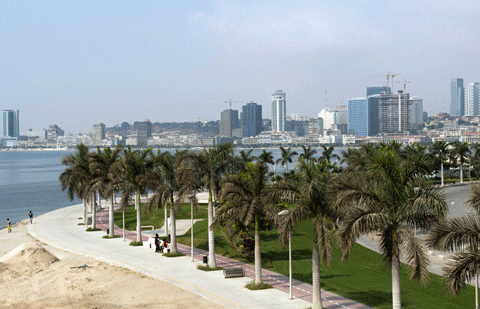China, continent find success with sports training exchanges
Updated: 2014-05-08 07:10
By Sun Xiaochen (China Daily)
Comments Print Mail Large Medium Small
Sports are providing a field of growth for ties linking China and Africa, with the goal of greater cooperation.
Exchanges have been enhanced by specialized experts and a growing number of programs.
In the last 15 years, more than 40 Chinese coaches in sports including table tennis, badminton and gymnastics, have worked in Egypt, Ethiopia, Kenya and other African countries as part of a coaching aid program, according to the State Administration of Sport of China.
Zhang Zhaoling, a table tennis coach from Xi'an, Shaanxi province, left his home and family in 2008 for Egypt.
Zhang's six-year stint has paid off, with players winning a number of domestic and international championships.
Under Zhang's guidance, the Egyptian men's national squad won a bronze medal at the 2013 ITTF World Cup team competition, its best result ever at a major world event, and female player Dina Meshreef qualified for the 2012 London Olympics.
"I never thought I could make it this far when I took up the appointment six years ago. It's been a bittersweet journey, and I am proud of being able to spread the game to this part of the world," said Zhang, 49.
Joining Zhang to pass on China's expertise is badminton coach Luo Guohui, who steered the Seychelles to 10 All-Africa Games national titles, and martial arts trainer Lu Jian, who led Egypt to a gold, two silver and two bronze medals at the 1999 World Wushu Championships.
But it is also a two-way process. Overseas training camps in traditionally African-dominated events, like the marathon, have benefited Chinese athletes in return.
In February 2007, eight male Chinese athletes traveled to Kenya for a one-month marathon training camp.
Three years later, six women runners followed their male counterparts' footprints to train for more than 40 days at a high-altitude camp in the western Kenyan town of Eldoret, where they fine-tuned their technique with Kenyan runners.
To prepare for the 2015 IAAF World Championships in Beijing, a 16-member national women's marathon team has returned to Eldoret for intensive training this year, according to team leader Wang Bin.
"This is the cradle of many top marathon runners and attracts talented African athletes every year," Wang said.
The men's squad is also planning a training trip to Ethiopia, also a marathon powerhouse, in the second half of this year, Wang said.
Meanwhile, the growing number of international marathon events in China has provided new stages on which African athletes can shine.
According to the National Athletics Administrative Center, China has 25 full- and 10 half-marathon events every year in major cities like Beijing, Guangzhou and Shanghai, attracting more than 200 African athletes with high-quality courses and prize money that reflects their importance.
"Conditions in China are fantastic, and the coastal course along the sea is so impressive," Ethiopian female runner Mare Dibaba said of the 2014 Xiamen International Marathon after breaking the event record to win an $81,000 purse.
Six runners from Ethiopia and Kenya captured the top three places in both the men's and women's events in the Xiamen race.
African athletes help improve the sport's overall level in China while promoting the image of Chinese events, said Du Zhaocai, head of the administrative center.
sunxiaochen@chinadaily.com.cn







